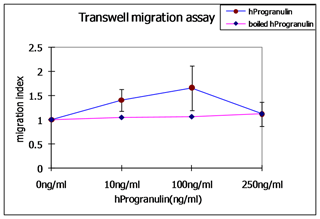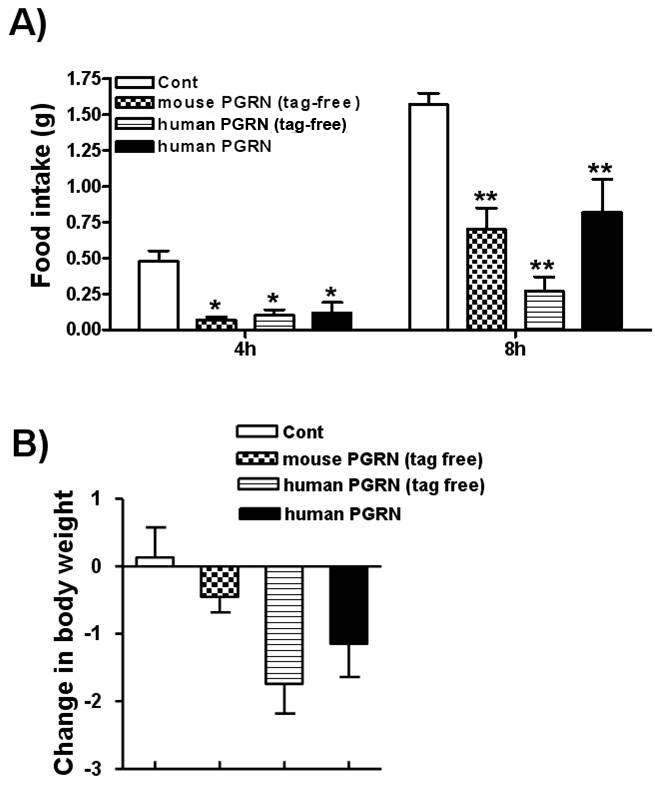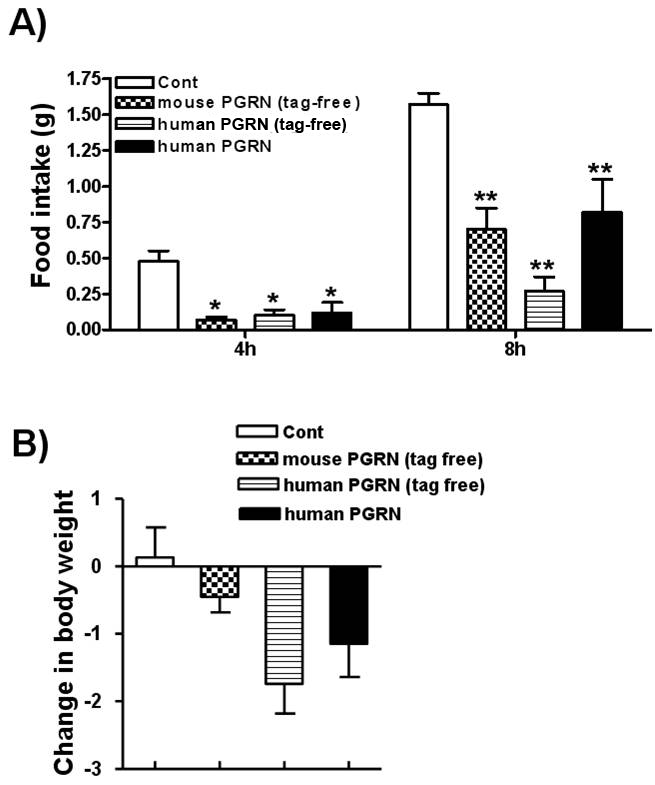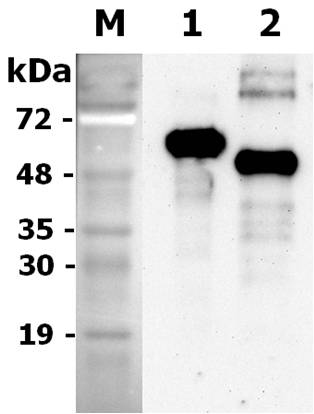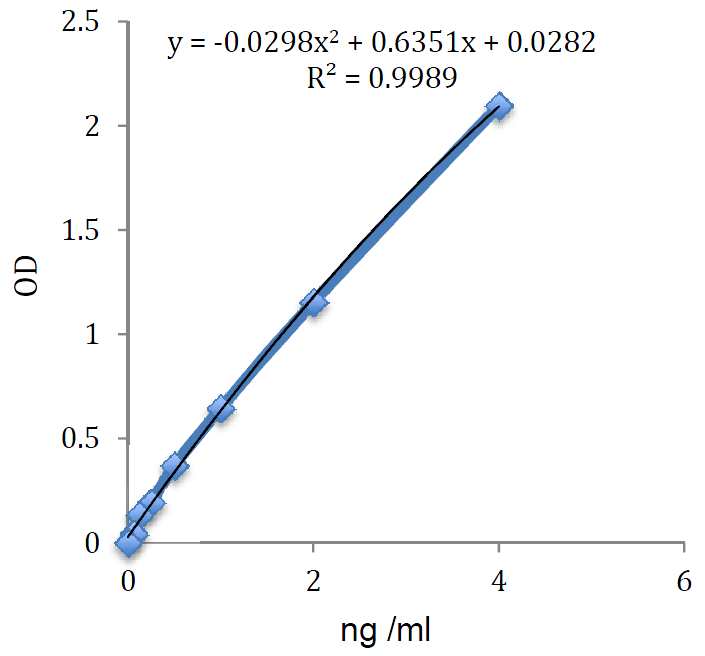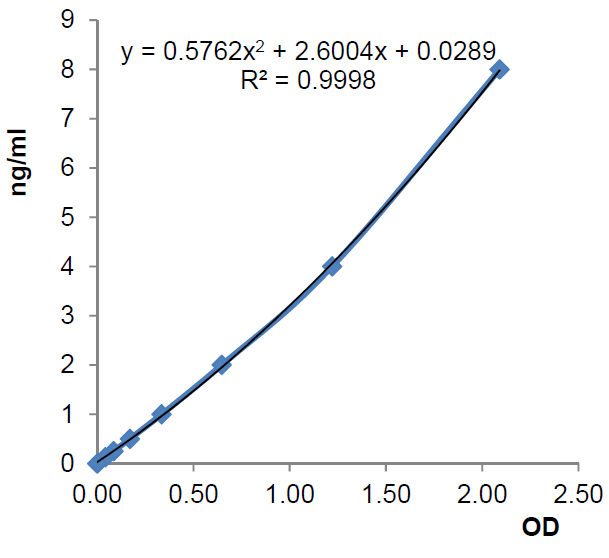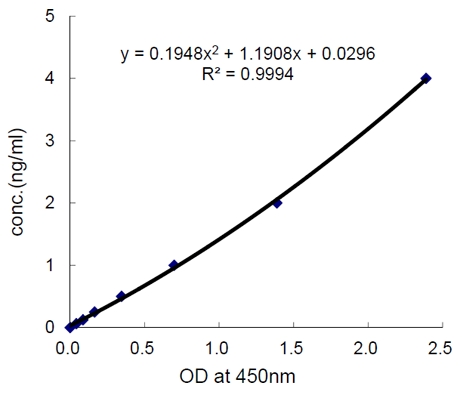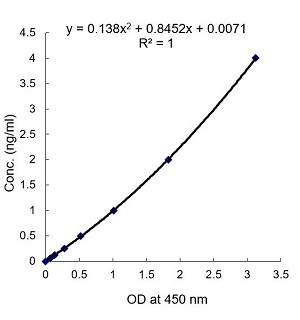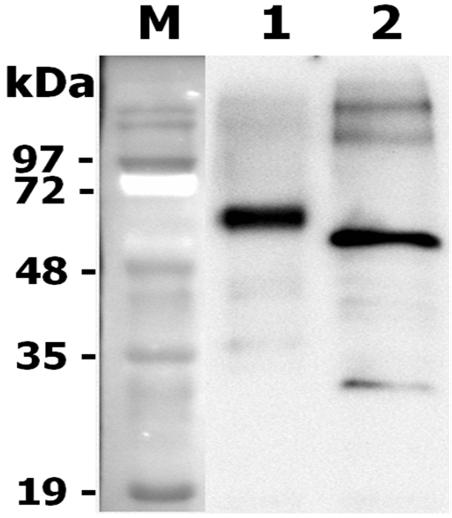
Deglycosylation of rat progranulin. To examine the deglycosylation of rat Progranulin-FLAG, 1 microg of rat progranulin is denatured with 1X glycoprotein denaturing buffer at 100°C for 10 minutes. After the addition of NP-40 and G7 reaction buffer, two
Progranulin (rat) (rec.)
AG-40A-0194
Product group Proteins / Signaling Molecules
Overview
- SupplierAdipoGen Life Sciences
- Product NameProgranulin (rat) (rec.)
- Delivery Days Customer10
- CertificationResearch Use Only
- Estimated Purity>95%
- Scientific DescriptionProgranulin (PGRN) is a widely expressed pluripotent growth factor which plays a role in processes such as development, wound repair and inflammation by activating signaling cascades that control cell cycle progression and cell motility. Its function in the central nervous system is of interest, as mutations in the PGRN gene were found in cases of frontotemporal degeneration (FTLD). In addition, PGRN has also been linked to tumorigenesis. Progranulin is a biomarker for FTLD, other types of Alzheimers Disease (AD) and potentially for MCI (Mild Cognitive Impairment). Additionally, PGRN is described as a new ligand of TNF receptors and a potential therapeutic against inflammatory disease like arthritis. EphA2, a member of the large family of Ephrin receptor tyrosine kinases, is also a functional signaling receptor for progranulin as reported recently. - Protein. Signal peptide and rat progranulin (aa 1-602) are fused at the C-terminus to a FLAG®-tag. Source: HEK 293 cells. Endotoxin content: 95% (SDS-PAGE). Progranulin (PGRN) is a widely expressed pluripotent growth factor which plays a role in processes such as development, wound repair and inflammation by activating signaling cascades that control cell cycle progression and cell motility. Its function in the central nervous system is of interest, as mutations in the PGRN gene were found in cases of frontotemporal degeneration (FTLD). In addition, PGRN has also been linked to tumorigenesis. Progranulin is a biomarker for FTLD, other types of Alzheimers Disease (AD) and potentially for MCI (Mild Cognitive Impairment). Additionally, PGRN is described as a new ligand of TNF receptors and a potential therapeutic against inflammatory disease like arthritis.
- Storage Instruction-20°C,2°C to 8°C
- UNSPSC41116100

